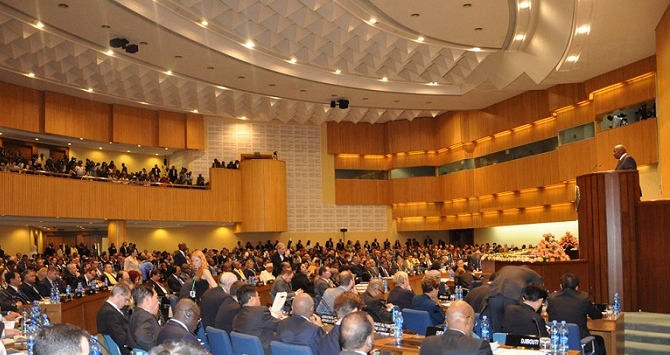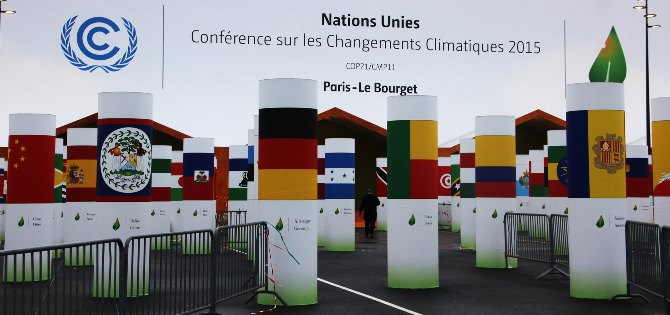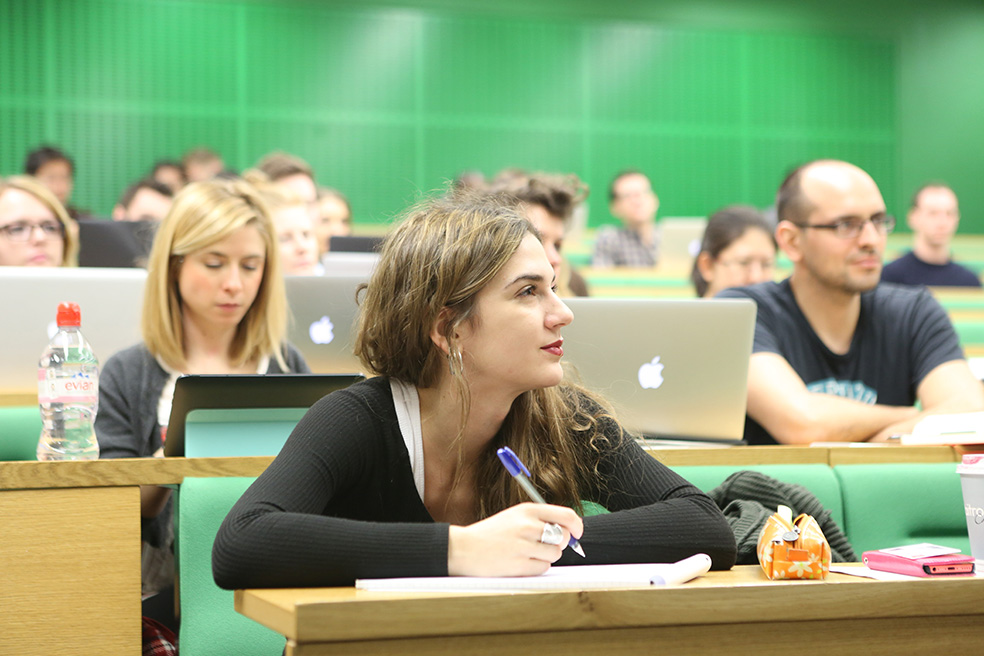On Friday 23 February, Danny Sriskandarajah (@civicusSG), the Secretary General of CIVICUS, a global alliance of civil society organisations, delivered a lecture that questioned whether the development sector has helped or hindered civil society.
Masters students, Lauren Pak reflects on the lecture, whilst David Riveros García relates the discussion back to his own experience.
Non-governmental organizations (NGOs) are a direct response to state failure and the consequences of the market. NGOs provide marginalized communities with necessary and immediate services in the absence of infrastructure to address social and economic injustice.
CEO of Civicus, Mr. Danny Sriskandarajah spoke to the great paradox of non-profit organizations, a reality that must be at the core for all development practitioners. NGOs are merely a response to an already broken system, with its work limited to addressing the symptoms and not the causes of inequality. In fact, NGOs can perpetuate institutionalized inequality if strategies are not aligned with the ultimate goal of achieving self-sustainable communities.
Those in the development field must reconcile with the fact that NGOs were never meant to achieve liberation. True liberation is the expression of people’s power, defined by Sriskandarajah as “empowered people finding resources to solve problems where states and markets fail, to come together, to mobilize.”
Today, with established channels for development work through the private sector (vis-a-vis impact investing, corporate social responsibility), government aid agencies, and multilateral organizations, there is more capital directed towards development projects than ever. The third sector, and the public and private, are all essential actors in this multi-level process and can provide the building blocks for equity and mitigate the ecological barriers to community organizing. However, as put by Sriskandarajah, “money might trickle down but power doesn’t.”
Though the corporatization of the development sector has presented enhanced transparency and organizational structure, it has also resulted in what Sriskandarajah calls a bureaucratic bidding and planning process that dangerously misses the voices of those who should be front and center.
So how does one build people’s power?
This is not to say that NGOs have no role to play, and I would disagree with Sriskandarajah’s argument that “conventionally organized” NGOs do not have the legitimacy nor “authority of grassroots opinion.” NGOs possess the best, direct working relationship and communication channels with local communities. Furthermore, people’s power can only be cultivated in conjunction with service providers, that actively avoid perpetuating deficit thinking and unequal dependency and account for systemic cycles of vulnerabilities.
I would also like to push Mr. Sriskandarajah’s proposal even further, where decolonizing development is not only limited to aid agencies or charities, but also involves the local reownership of activism space and social movements. With the measures of democracy and a “healthy” civil society developed by Western powers, civil society also requires the cultural freedom to organize in an inclusive manner that best amplifies and speaks to one’s community.
“The development sector is dead, long live development”, rather than defeatist, Sriskandarajah’s conclusion is a reflective rallying point. It asks: Do we truly believe and long for the day where there is no community need for NGO services? Where development agendas are community-led? The seeming growing pains of the sector only challenge us to think more critically. As those who benefit from the current system, we must be uncomfortable if we ever hope to move forward in achieving the realization of a just society.
Lauren Pak (@PakLauren) comes to LSE from a community development and organizing background shaped by experiences in Los Angeles and Nashville. Lauren hopes to connect ideas from the Global South to the US for more critical and culturally inclusive practice.
________
Danny’s presentation edged on cynicism. In fact, his appreciation of civil society organizations’ (CSOs) contribution to development was acerbic in tone. In my opinion, his depiction of the third sector could not have been more somber if it wasn’t for the fact that I found it so blatantly accurate.
As an anti-corruption activist leading a grassroots NGO in Paraguay, his well-supported criticisms not only rang true, but also offered refreshing sincerity. In a way, this was a powerful reminder. By identifying and attacking the incoherencies in CSOs’ contributions to development, we might still prevent the third sector from succumbing to the corporatist incentives of what Danny called “the development-industrial complex”.
Four years ago, Danny published an open letter that could have served as preliminary reading for his lecture. In the letter, he reminded activists that citizens’ increased distrust in governments has been concomitant to civil society’s loss of credibility and legitimacy. He wrote:
“We [CSOs] are the poor cousins of the global jet set. We exist to challenge the status quo, but we trade in incremental change”.
Of course, this is not the case for all of them, but perhaps many CSOs have increasingly become too comfy with the established powers they were once meant to challenge. The symptoms are there to be reckoned with. Danny cited the bureaucratization, the “logframitis”, and the professionalization that tends to be proportional to the distance between NGOs and the grassroots.
The logical consequence is a steady decrease in the number of community-based organizations that are accountable to their constituents: the ones that can legitimately claim to represent their voice. As such, CSOs end up neither complementing nor balancing development agencies, but simply mirroring their work. And this has profound repercussions given the gap that ensues between local communities, development actors, and the solutions to problems that require their close cooperation.
In this context of disintermediation, Danny added, spontaneous movements will become more common. While leading a demonstration in Paraguay, I witnessed this disintermediation at play a few times. After days of demonstrations in a public square, who follows up on the demands made until they materialize into policy? Who maintains strategic pressure on policymakers after another demonstration takes place for a different reason?
The absence of change after intense, yet momentous civic engagement leads to a public feeling of powerlessness and frustration. Effecting change requires the skills and capacity that CSOs are expected to provide. So when CSOs lose legitimacy or when they don’t engage politically in areas that are relevant to their work, change is harder to achieve and people might feel disempowered.
Danny acknowledged the tension between tenacious political institutions and unresponsive CSOs. He stressed the need for actors capable of channeling reform agendas and holding governments accountable. His lecture tested our beliefs—and perhaps hopes—about the role of CSOs in empowering people. It is a grim situation. But that’s precisely why we need to engage with it.
David Riveros García (@aerostatico_Dd) is an MSc Development Studies student and a Chevening Scholar. He is president of @reAccionpy, a grassroots NGO that promotes transparency in the education sector of Paraguay. His research interests include information and communication technologies for development (ICT4D), citizen engagement and social accountability, youth political participation, and strategic non-violent conflict.
This talk was part of the Cutting Edge in Development series, hosted by the Department of International Development.
The views expressed in this post are those of the author and in no way reflect those of the International Development LSE blog or the London School of Economics and Political Science.





